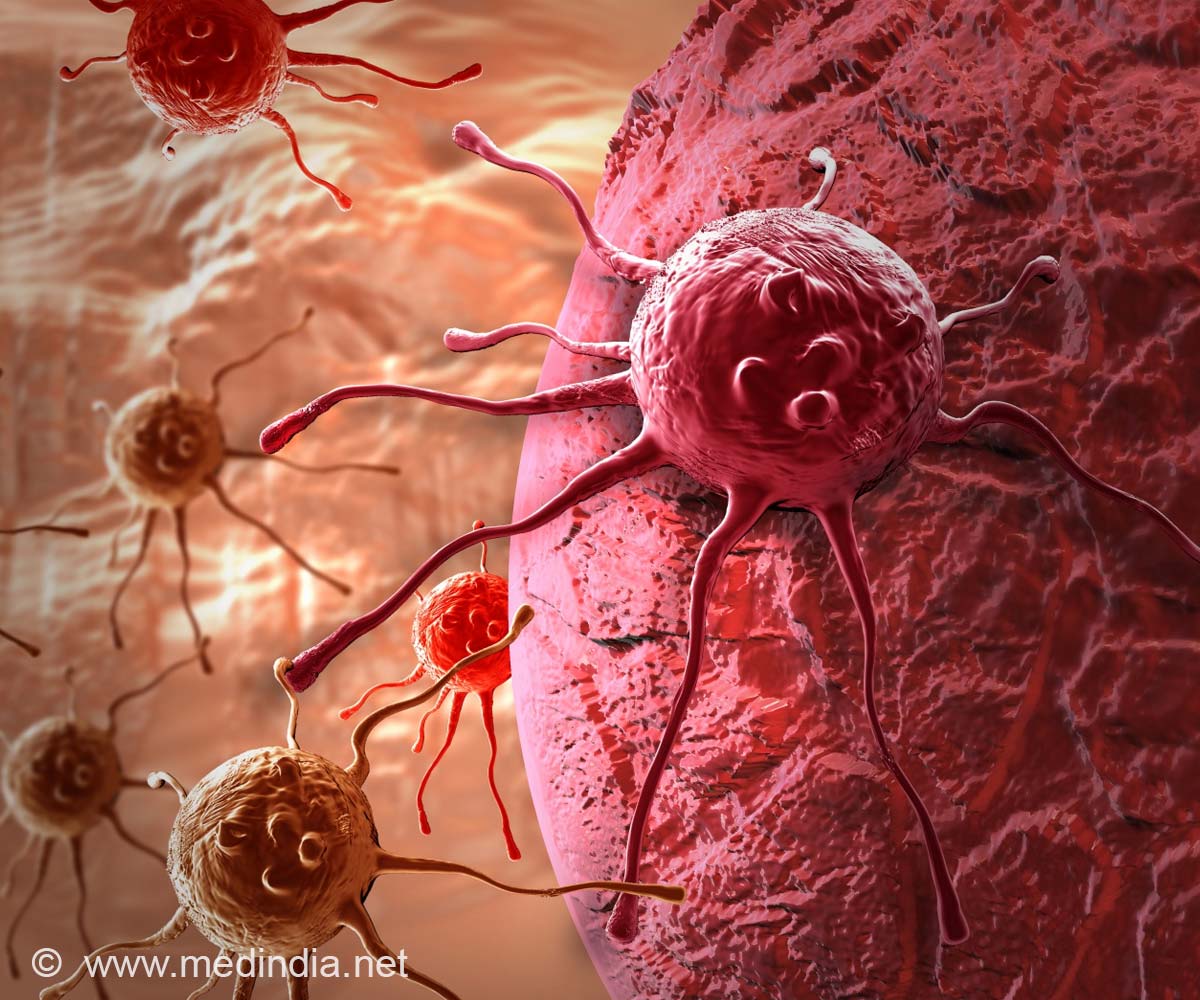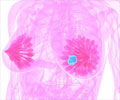When tumor cells lose their ability for self-renewal through stem cells, they are less likely to grow and become invasive.

‘Triple-negative breast cancers account for 15 to 20 percent of all breast cancers. They are so named because they lack estrogen and progesterone receptors and the HER2 protein.’





Led by Saraswati Sukumar, Ph.D., the Barbara B. Rubenstein Professor of Oncology at the Johns Hopkins Kimmel Cancer Center, the scientific team reports that EAD therapy -- named for each of its component drugs -- "significantly" reduced the size of triple-negative breast cancer tumors in mice and the number of lab-grown spheres of metastatic breast cancer cells harvested from patients and grown in the laboratory. Specifically, Sukumar and her colleagues tested several pairings of drugs before determining that the EAD combination was the most potent against triple-negative tumors. For instance, doxorubicin alone was able to reduce the formation of tumor spheres grown in the laboratory by 32 percent, while entinostat alone or ATRA alone could reduce them only by 18 percent. However, the combination EAD therapy reduced the formation of spheres by 90 percent.
Triple-negative breast cancers account for 15 to 20 percent of all breast cancers. They are so named because they are negative for, or lack, estrogen and progesterone receptors and the HER2 protein -- all of which are implicated in other types of breast cancer. Without hormonal or HER2 receptors to target, patients with aggressive triple-negative breast cancers are not likely to respond to drugs that target those molecules, says Sukumar. Combinations of chemotherapy drugs are the current standard treatments, but about one-quarter of patients with triple-negative breast cancers will not respond to them. Thus, she says, finding combinations that work better than those in common use is an ongoing endeavor.
Compared to the combination of entinostat and doxorubicin, EAD reduced by twofold the number of tumor-starting cells in the tumor spheres, suggesting that the addition of ATRA helped to move the tumor away from a "stem like" state to a more differentiated group of cells that are more responsive to drugs.
In spheres grown from six patients' metastatic triple-negative breast cancer cells, EAD was also the most effective at decreasing tumor growth, reducing the number of spheres formed by about 80 percent, compared to about 40 percent reduction by the next-best treatment of doxorubicin alone.
Advertisement
"If the cancer is supplied with agents that can cause their differentiation faster than their production, the tumor will shrink, since more cells are dying than are being produced to replace the dead ones," she says.
Advertisement
Source-Eurekalert















